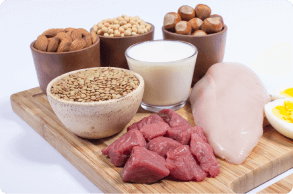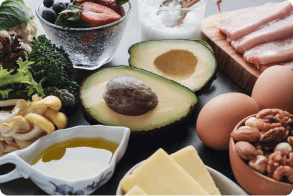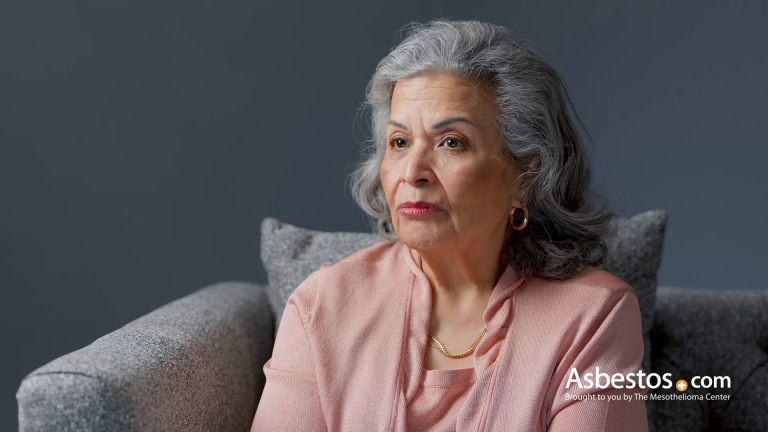Diets for Mesothelioma Cancer Patients
Popular cancer diets include Gerson Therapy, High Protein, Keto, Macrobiotic and Budwig. Finding the right cancer-fighting diet is essential for mesothelioma patients. A good diet for cancer patients includes protein, calories, vitamins and minerals.
Types of Cancer Diets
Finding the proper cancer diet after a mesothelioma diagnosis is essential. Your body cannot make the most of planned mesothelioma treatments without adequate nutrition.
Popular Cancer Diets
- High Protein
- Macrobiotic
- Ketogenic
- Gerson Therapy
- Budwig
The best diets for cancer patients provide adequate nutrients such as essential vitamins and minerals. For example, a 2021 clinical research study noted that patients with asbestos-related diseases had a higher risk of vitamin D deficiency.
Eating well helps your body tolerate treatments, rebuild immune function and recover after each medical procedure and therapy session.
There are potential risks and benefits with most diets for cancer patients. For example, some of these eating plans may be too restrictive.
When a patient struggles to meet basic nutrition needs, any diet that eliminates many foods a person eats typically can worsen the situation and increase treatment complications.
Remember this as you search for the optimal holistic cancer patient diet. Even the best natural cancer or mesothelioma diet can cause more harm than good if it doesn’t provide adequate calories and protein.
High-Protein Cancer Diet
Many experts recommend extra protein for cancer patients. Protein supports lean body mass, which includes your muscles and other vital tissues, such as red and white blood cells.

Lean body mass is critical to responding to cancer therapies, including surgery, chemotherapy and radiation treatments.
A high-protein diet includes cancer-fighting foods such as chicken, fish, lean beef, Greek yogurt, beans, lentils, peas, soy, eggs and nuts.
Following a high-protein plan, mesothelioma patients should eat 0.65 to 0.75 grams of protein per pound of body weight each day. For example, weighing 185 pounds, you will aim to consume 120 to 139 grams of protein daily.
Dietary protein can preserve lean body mass during mesothelioma treatment. Lean body mass, in turn, supports your cancer therapy goals.
Downsides of the High-Protein Diet
There are very few downsides to the high-protein diet for cancer patients. International cancer nutrition guidelines recommend all people with cancer eat more protein.
- Kidney and liver health. If you have kidney or liver disease, you may need to limit dietary protein. Talk to your doctor or dietitian about how best to balance kidney and liver health with your body’s increased protein needs during mesothelioma treatment.
- Non-protein calories. Focusing exclusively on protein limits important carbohydrates and fats. Eat healthy, high-calorie carbohydrates and fats, such as sweet potatoes, berries, whole grains, avocados, nuts and olive oil. This supports protein’s tissue-building qualities.
- Timing of protein. Your body absorbs protein best when it is spread throughout the day. Aim for 15 to 20 grams of protein with snacks and 30 grams with meals. Many people benefit from more protein earlier in the day, with breakfast and lunch.
Cancer dietitians who work with patients usually prioritize protein. Still, it would be best to balance protein needs with other health concerns and dietary goals.

Find the top cancer centers trusted by mesothelioma patients nationwide.
Get Help NowMacrobiotic Holistic Diet for Cancer Patients
According to the nonprofit Macrobiotic Association of Great Britain, this natural cancer diet originates in Asia and dates back centuries. It meets nearly all the dietary guidelines the American Cancer Society and the American Institute for Cancer Research promote.
- 40% to 60% whole grains
- 20% to 30% vegetables, including sea vegetables
- 5% to 10% legumes, including beans, lentils and soy foods
- Small amounts of fruit, fish, seeds and nuts
Case studies suggest the macrobiotic diet can improve health in cancer patients, but there are no controlled clinical trials. The macrobiotic diet meets or exceeds most U.S. dietary recommendations. It provides more fiber than a typical American diet and the Recommended Dietary Allowance for many vitamins and minerals.
Downsides of the Macrobiotic Diet
While the macrobiotic diet for cancer patients offers some positives, it does not provide adequate amounts of protein, vitamins D and B12 and calcium for a person battling mesothelioma.
Steps to Make Macrobiotic Diet for Mesothelioma
- Cut the whole grains in a standard macrobiotic diet by half.
- Replace the grains with high-protein items such as fish, chicken and Greek yogurt.
- Focus on more fruit, such as berries and cherries, and fewer low-calorie vegetables.
- Add healthy high-fat foods including nuts, seeds, avocados and olive oil.
Vitamins and proteins that fight cancer are essential. If deficient in these critical nutrients, cancer treatment side effects may be more severe.
Still, the diet can work for a mesothelioma patient if it is modified to include more protein, healthy fats and fewer carbohydrates. High-protein foods also provide more vitamin D, vitamin B12 and calcium.
The Keto Diet
The ketogenic diet, often called the “keto diet,” is a high-fat, low-protein, extremely low-carbohydrate diet. When followed correctly, the keto diet forces the body to burn fat, which creates ketones. The ketones are used for energy, resulting in a metabolic condition called ketosis.
- 80% to 90% fat
- 8% to 15% protein
- Remaining calories from carbohydrates

One theory behind why the cancer keto diet is a good choice is that cancer cells only use glucose for fuel.
The body creates glucose from dietary sugar and carbohydrates, and some keto diet followers believe limiting them can prevent cancer from growing and spreading.
Some data shows a ketogenic diet lessens treatment side effects for certain cancers, such as brain tumors. No studies have shown a ketogenic diet can cure mesothelioma or any other cancer.
A 2019 review paper published in the European Journal of Clinical Nutrition did not identify a connection between dietary sugar and cancer risk. Moderate amounts of dietary sugar do not cause worse outcomes in cancer patients.
Downsides of the Keto Diet
Weight loss is one of the most popular reasons for following a ketogenic diet. Most mesothelioma patients struggle to eat enough to maintain weight; any diet that promotes weight loss may cause more harm than benefit.
Normal cells can use ketones for fuel. Some studies suggest ketones also promote the growth and spread of cancer cells.
The ketogenic diet can be challenging to maintain, especially if you aren’t feeling well. Side effects can include constipation, fatigue and muscle cramps.
If you eat a few extra grams of carbohydrates, this can stop ketosis. You may end up with an unbalanced, high-fat diet that isn’t ketogenic.
Still, some people feel a ketogenic diet is worth trying if they have aggressive cancer, and researchers are studying the diet for cancer patients.
If you decide to try keto, work with a cancer dietitian with ketogenic diet experience. This person can help you design a keto plan that won’t lead to excessive weight loss or malnutrition during cancer treatment.

Ease your mesothelioma symptoms with the right food. See recipes designed for you.
Get My Free GuideGerson Therapy Cancer Diet
Gerson Therapy is an alternative cancer treatment program with a strict dietary plan. German doctor Max Gerson developed it in the early 20th century. It is also known as the Gerson regimen or method.
- Drink 20 pounds of crushed and juiced fruit and vegetables daily
- Consume the juiced and crushed food hourly, for at least 13 hours every day
- Take multiple dietary supplements daily including potassium, vitamin B12, pancreatic enzymes and “thyroid-support” products
The plan also endorses three to four coffee enemas daily. Gerson therapists claim this can remove toxins from the body and bolster immunity against cancer.
There are no studies to support any of the claims of Gerson practitioners that this therapy can prevent, treat or cure cancer.
Downsides of the Gerson Diet
The Gerson Therapy diet is unbalanced and provides inadequate protein, dietary fat and other essential nutrients. It can be very harmful to people with mesothelioma and other cancers.
People receiving Gerson Therapy have reported a loss of appetite, diarrhea, stomach cramps, sweating, fever, dizziness and cold sores.
The enemas can lead to bowel infections, dehydration, dangerously low potassium levels, mineral and electrolyte imbalances, constipation, bowel inflammation and death.
Gerson therapists often recommend against chemotherapy. It is an essential cancer treatment proven to extend the lives of people with mesothelioma.
Budwig Diet
German biochemist and pharmacist Joanna Budwig developed a nutrition protocol in the 1950s to treat cancer. She believed processed fats in the diet caused cancer, and she designed her plan to address this.
- Alcohol
- Animal fats
- Caffeine
- Dairy, except for cottage cheese
- Hydrogenated oils and fats
- Pork
- Preservatives
- Processed foods
- Refined flour and grains
- Refined sugar
- Shellfish
The Budwig Diet emphasizes a mostly vegetarian eating pattern. This diet includes consuming a blend of flaxseed oil and cottage cheese daily. The program also comprises juicing and other whole plant foods.
Downsides of the Budwig Diet
The Budwig diet can be too restrictive for someone receiving mesothelioma treatment.
The Budwig diet excludes most meat and other nutrient-dense foods critical for healing and recovery.
Fruits, vegetables and fresh juices can be healthy for many people. However, these foods do not contain many calories. They could displace more essential foods in a mesothelioma patient’s diet.
Components of the plan also may be unpalatable to cancer patients. Many patients experience taste changes due to cancer therapies.
Choose the Best Cancer Diet for You
The most crucial goal in nutrition after a mesothelioma diagnosis is to eat in a way that supports your body’s best response to cancer treatment.
For most patients, an eating plan with plenty of protein and enough calories can prevent weight loss and maximize quality of life. This plan can also optimize the efficacy of cancer therapy.
If you’re losing weight, feeling weak and tired or not hungry, ask your doctor. They can refer you to a dietitian. This person can help you develop creative and effective techniques. These can address barriers and challenges to eating well and fueling your body.
Recommended Reading




